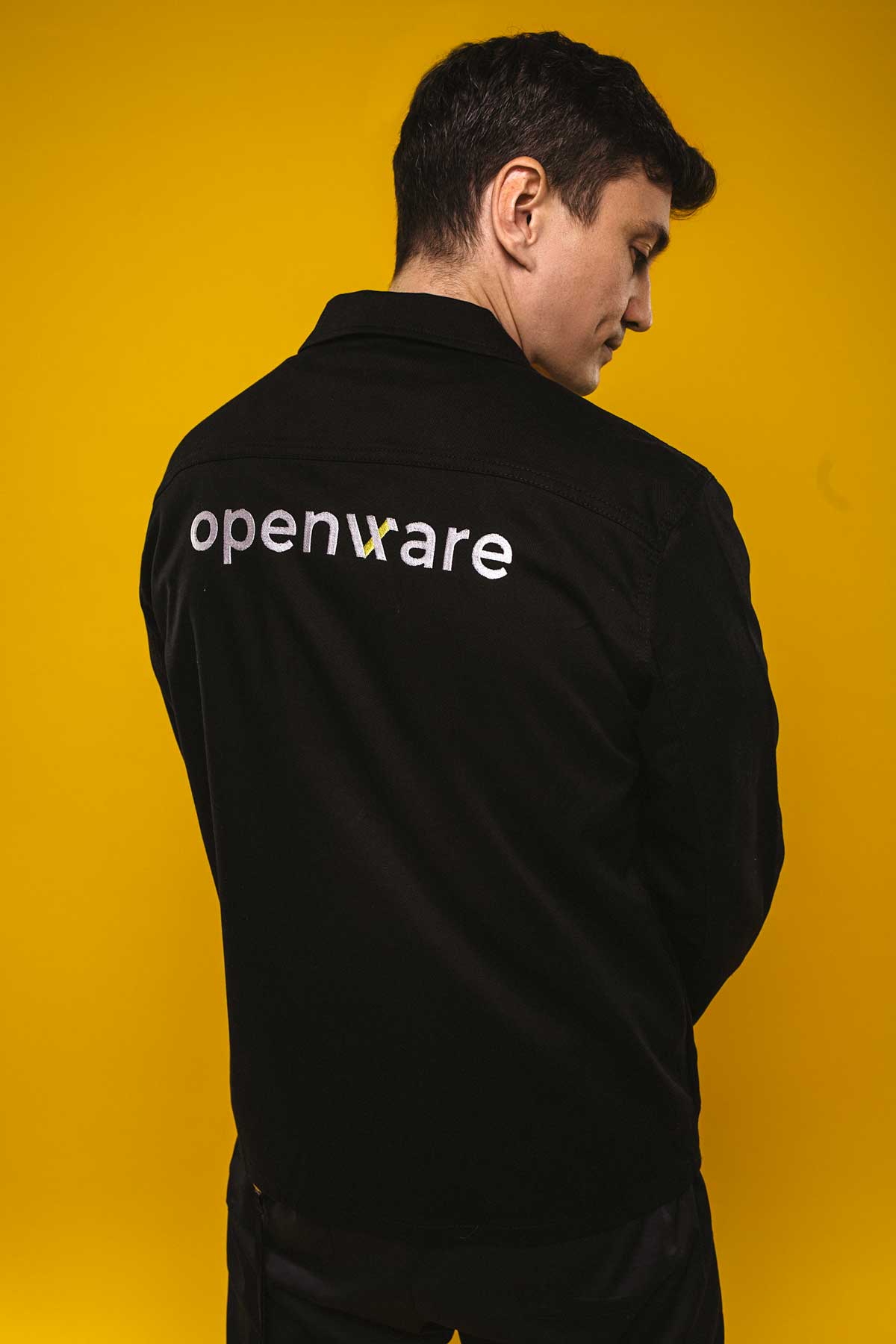
Recently, I spoke with Louis Bellet, CEO at Yellow Group, which helps blockchain startups with seed investments, mentorship, software solutions and advising, about his projects and vision of the crypto space. Yellow is a new generation hybrid exchange, and we discussed what makes it special and different from other solutions on the market. Louis also told us about Yellow token, NFTs, shared his crypto portfolio and tried to predict the Bitcoin price one year from now. Don’t miss this piece!
U.Today: Can you please introduce yourself, tell us about your background, and how you first learned about cryptocurrencies?
Louis Bellet: I'm a self-made internet entrepreneur. I started when I was 12 years old. From a young age, I was developing websites and different start-ups. My first significant venture was when I was 18 years old. By now, it probably has dozens of employees. The venture was in the gaming sector and affiliate marketing. Then I studied, but not for long. I traveled around the world. I first got into crypto because of my friend at Bitfury. He was a long-time partner and a friend. He's the former CTO and founder of Bitfury. We started talking about Bitcoin around 2012. I kept in touch with him and was able to learn about crypto, the technology, and he was already mining. I was able to really learn about crypto from that point. I was involved in other ventures during that time and was quite busy, until 2015. At that time, I started shifting industries, and I wanted to shift full-time into the blockchain industry because I was really inspired. In 2015, I started with enterprise blockchain—consulting and security for banking with IBM. I worked more on enterprise blockchains than on public blockchains. A few years later, I was able to fully dedicate myself to this activity. Now, it's a full-time job for my businesses and every employee in our company.

Louis Bellet. Photo by Yellow Group
U.Today: Now, you're a co-founder at Openware and Yellow Group. Let's discuss these projects, starting with Yellow.com. What's your role in this project? What is it dedicated to?
Louis Bellet: Yellow acquired my company, Openware, so Yellow Group is the main group holding. Several start-ups, including Openware, are parts of Yellow. Openware is the dominant firm in the group, providing B2B blockchain solutions and services.
U.Today: What about Openware? Why do we need more crypto exchanges on the market?
Louis Bellet: I do not think we need more crypto exchanges on the market. I think we probably need less. One of the activities we have in Yellow is market-making. This is quite a complex task, to do market-making in this environment. I do not think we need more exchanges, but we need more brokers, and I believe we need crypto to step into the traditional finance model, which is also the one that is regulated. Brokers have a role in an organization, and that works for trillion-dollar organizations.
I do believe that the model of multiplying exchanges is just wrong because it does not scale. It dilutes liquidity into smaller exchanges and companies. I've been working on this problem for several years, trying to scale the business.
I believe the planet should have about 10,000 brokers worldwide at different levels: VIP Brokerages, Prime brokerage, etc. A brokerage is a company selling assets and managing investments for their customers, and their main job is advising their customers and helping them make the right investment and comply with regulations…that's absolutely not what exchanges are doing today. They are doing a terrible job in B2C, and they are doing a terrible job in customer support. Maybe one broker is Coinbase, let’s say, but the other one is an exchange. There is huge room for improvement here. Exchanges want to concentrate liquidity. They want to get a customer with a large volume, but they do not necessarily want to deal with small customers. Also, brokers need to be established in every region of every country. You need to have the local language, local currency, local bank integration, and local regulations, and you need to be able to apply local regulations in order to protect local customers.
U.Today: Can you please tell us about Yellow DeFi?
Louis Bellet: Yellow DeFi is a research and development group where we leverage decentralized technology to help us scale a cryptocurrency exchange. We integrate technologies, and we are trying to bring together the best of both worlds to build the infrastructure of tomorrow. Yellow DeFi has this edge and advanced projects that do not necessarily apply to enterprise and traditional finance. We have a technological improvement in blockchain that is significant and can help fintech. So we have a “tokenize everything” policy. Over the years, we have understood that security from smart contracts and blockchain is much better and more manageable than traditional architecture. Also, the main thing with decentralized applications is a much lower cost of maintenance. It is a formidable machine that does not require too many employees to operate. That's a huge difference. If you take a system as large as Ethereum in terms of diversity, you would probably need 100x more employees to operate such a system. And its security would be a lot worse than it is right now.

Openware. Photo by Yellow Group
U.Today: You also have a Yellow token. Can you tell us about it?
Louis Bellet: We are launching a sort of decentralized architecture of multiple brokerages connected with one another. You can see it as a decentralized exchange, but it's not the same model as UniSwap. It's a network of exchanges peering orders with each other. Anyone can start a server and connect to the OpenDAX network, and Yellow.com is going to be one of the peers of the network. The yellow token is the token associated with this project. For example, you can get discounted fees with Yellow token, and there is much more behind it. On Yellow.com, we are building a documentation portal for investors to understand a safe investment or risk investment because there is no 20x without risk.
It's very important to make crypto trading a safer place with objective information. Today, we believe that there is too much subjective information, and it is very hard to compare the information. Technology review, marketing review and activity review have to be aligned to criteria. This is what we are trying to do while still having social metrics to understand the quality of a project. The yellow token also serves as a reward for curating and moderating content on Yellow.com.
U.Today: I also have several personal questions; I hope you don't mind. First, what are your thoughts on Dogecoin-like tokens and other hype-based tokens like, for example, Shiba Inu? Do you think they have real value?
Louis Bellet: They have the value of being good entertainment. If people like it, they have value. I do find it entertaining, and it is useful in a speculative environment. You would not want every serious token to be highly speculative and have such volatility. But as long as the user understands what he's buying and getting himself into, that's fine. I think those projects label themselves as meme coins and as things that aren't serious. There has been both good and bad in the crypto business.
Today, the main trend is definitely people taking advantage of an unregulated space. They are increasing the gap between regulators and the free market.
I don't personally position myself here and I like to be agnostic, but I definitely do not want my industry to mislead consumers into believing the wrong things. That's not what those meme coins are doing. They could do a better job of clarifying the high risk and the lack of scientific foundation behind those tokens. I wouldn't say they are in active development, and I hope I'm not hurting anyone working at Coinbase. They have their purpose—Saturday night gambling on Binance. We don't have anything else to call it. It's just pure gambling. You may like gambling on an exchange more than at a poker table. But they are not so different, and the odds are almost the same.
U.Today: Which projects in the crypto industry do you respect the most?
Louis Bellet: I respect projects with active developers, with people who are taking an alternative path. I don't believe there is a magic white paper. I believe that there are teams that should communicate with each other through universities or through white papers circulating online and adopt those innovations in blockchain. For example, Solana has not been confirmed. I think it needs to gain some maturity for us to see if it is really a new, innovative breakthrough. I would say every team should consider integrating the benefits and the technological improvement that it brings. For example, the capacity to innovate is the key, and innovation is understanding you might have been wrong, or there may be a better model, and changing your roadmap and integrating those things so as not to destroy your ecosystem. But companies try to survive by having the best technological view and the ability to integrate it. This is where I would put my money, and this is the challenge of every engineer.

The team. Photo by Yellow Group
U.Today: Do you have a crypto portfolio? If so, what's in it?
Louis Bellet: I do have Cardano, Solana, Ethereum, Polkadot. I believe in what Polkadot is building. I don't find it extremely original, but I would say it's a good foundation to build on because it's a clean design.
U.Today: What are your thoughts on NFTs? These projects faced a lot of rejection at the beginning, but now they're becoming more and more popular. I have press releases about NFTs every day in my email. Do you have your own NFT items?
Louis Bellet: I don't have NFTs myself. I wouldn't mind making some acquisitions, but the art world is already very complicated, and I'm not very savvy in art investment. I believe I'd rather buy something that I like at a price point that makes sense to me because I'm not capable of making investment decisions in the art world—though NFTs are not limited to the art world. I'm working with and using NFTs, and we have an NFT platform product at Openware. So, we build software for the NFT platform and trading NFTs as well, like tokenizing NFTs. A non-fungible token can be split into a fungible token that becomes tradeable. Those are very interesting projects in a variety of areas.
I do have concerns about NFTs. By design, they are one of the worst smart contracts we have.
It does not scale well, and it costs quite a lot in terms of development and deployment. There is a way to improve the design, but we will still probably call them NFTs several years from now. Let's put it this way: this is an industry where there is a need. None of the existing solutions are really serious right now. Everyone is positioning themselves in this market to get market share. I don’t know if it's oversubscribed or overhyped, but we need to build this company. We need to build this expertise to later have an infrastructure of advancing technology and turn it into more reliable applications. For example, I believe NFTs could help e-commerce in confirming the authenticity of things you buy.
U.Today: Last question: Can you try to predict the Bitcoin price at the beginning of 2022—just your opinion?
Louis Bellet: That is too short of a period. But I would say, it will be between $50 and $60K.
U.Today: And how about one year from now?
Louis Bellet: Probably $75-$100K.
U.Today: Thank you so much, Louis, for the interview.

 Denys Serhiichuk
Denys Serhiichuk Gamza Khanzadaev
Gamza Khanzadaev Tomiwabold Olajide
Tomiwabold Olajide